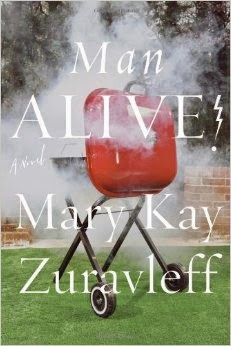My 2014 Book List: Beyond Bests
 |
| I also read this–and loved every “punny,” compassionate beat. |
One of the greatest habits I developed in grad school was reading one book a week, for a total of 52 books per year. As a part of the Pacific University MFA program, students read 4 books a month (and write critical responses to at least 2 of those). Doing that for two years in a row changed my relationship to reading for the better. Of course, I’m reading like a writer–not strictly for entertainment or information, rather, for craft, possibility, and inspiration. In the 6 years since graduation, I’ve maintained a relatively healthy reading pace. For me, anything less than 30 books annually seems like a drought. Anything in the 40’s seems about right. And anything over 50 seems like the writer should probably be doing more writing and less reading.
Yet things like book tour travel, falling in love, and fostering family take time. I had a lot of all three in 2014 (no complaints!) and wondered how that might affect my reading practice. Thanks to a monthly membership to Audible, promising me 1 audiobook a month for the entire year…and thanks to the frequented 2-hour drive between Mercy Me and Raccoon Ridge, I was able to read 44 books in 2014 (14 were audiobooks). For the full list, visit my 2014 Goodreads shelf and author page (shameless plug: If you haven’t rated or reviewed Flashes of War on Amazon or Goodreads yet, please do so. It is surprisingly helpful, as organizers of prospective speaking gigs check these out frequently.)
“Best of” book lists are impossibly challenging, because they’re inherently subjective, yet often upheld to objective expectations. I’m not even going try…but I would like to offer commentary on a few of the more notable books from my 2014 list. Food for thought:
Politically pertinent, inspiring, and revealing:
- Sketching Guantanamo by Janet Hamlin: This is a collection put together by the only sketch artist with access to the military tribunals in Guantanamo. What I thought might be a “quick glance” coffee table book turned into an eye-opening pictorial expose with intelligent, brief commentaries by some of the today’s most highly respected investigative journalists. Picture the masterminds behind 9/11 praying 5 times a day in the courtroom aisles, with prosecutors, jurors, and survivors of the 9/11 victims looking on. No joke. This book is a keyhole look into something largely locked away, something that should–in my opinion–be publicly accessible and highly visible to the masses.
- Fort of Nine Towers by Qais Omar Akbar: A memoir of an Afghan childhood before, during, and after the Russian and American invasions, this is simply one of the most profoundly touching and important books of nonfiction I’ve read in the last decade. If you long to “know” what it’s like to grow up in Afghanistan…if you’ve wondered about what a “normal” Afghan childhood might be like…and what aspects of that life were changed by war and how, this is the book to read.
Most delightful discovery:
- The High Heart by Joseph Bathanti: This collection of short stories drew me in immediately. It is so wholly of a time and place, of a particular voice and vision, that I repeatedly forgot where I was–losing myself in its pages in the best possible way. Bathanti’s poetry-infused prose is nothing short of jaw-dropping, with at least one knock-my-socks off sentence on every page. Moments glitter and pop, images layer into 3D, and a world full of rugged individualism and tough love comes to life with compassion and precision. Hands down one of the most majestically written and influential short story collections I have ever read.
Oldie but a Goodie:
- The Great Gatsby by F. Scott Fitzgerald: No, not all writers were English majors, and not all writers have read the classics, me included. And no, I had not read this book before, despite numerous pleading recommendations thrown upon me by well-meaning enthusiasts. What matters to me most about this book is the way in which Fitgerald so precisely characterizes and describes the individuals in his novel. They are unforgettable in their strangeness, yet somehow not strange at all–as even their quirks are interesting and imaginable. For me, the affect of this skill culminated in the following paragraph, after which I knew I could never think of characterization and description in the same way (meaning, the bar has been raised):

